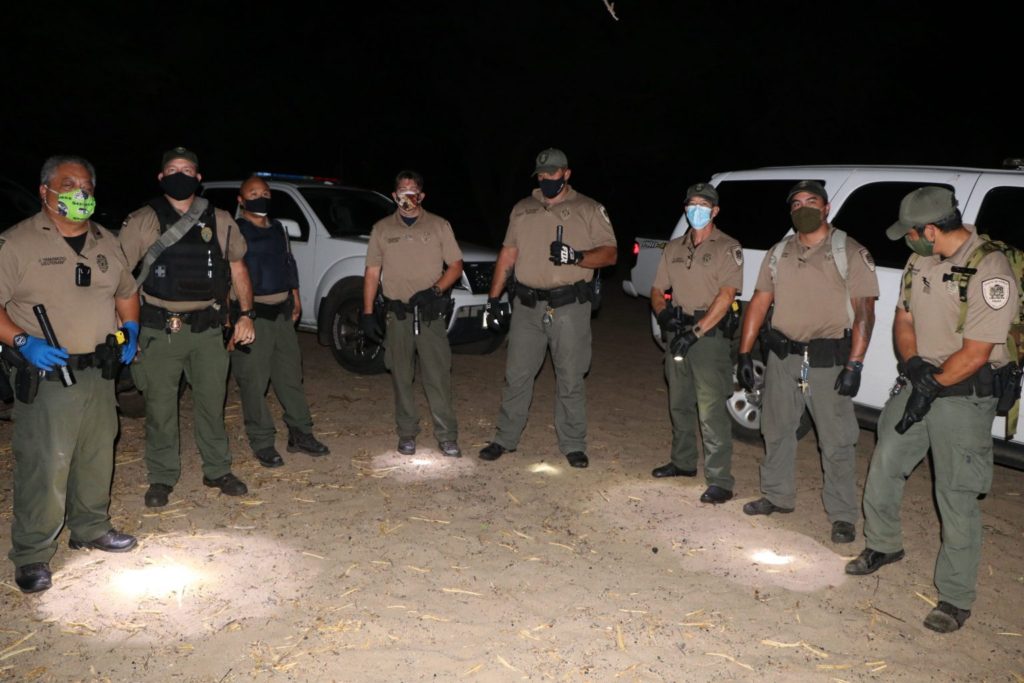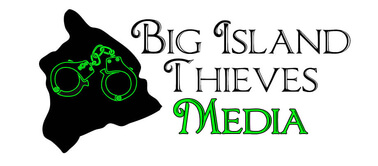
(Mākena State Park, Maui) – It’s become a Sunday night tradition that regulars on Maui fiercely defend. Every week, for years, hundreds of people gather at Little Beach (Puʻu Ōlaʻi) to view the week’s first sunset. Long-time participants claim it’s a spiritual gathering. There’s a drum circle and dancing. Drummer George Chyz claimed that drumming is rooted in culture and this is a way for people to show their respect.
DLNR Division of State Parks managers and officers from the DLNR Division of Conservation and Resources Enforcement (DOCARE) say these gatherings are more like big beach parties, with alcohol and drug use, nudity, and littering.
Law enforcement sweeps over the years, including one last night, have resulted in citations for violations like having alcohol in a state park, which is illegal. However, once word spreads through the ‘coconut wireless’ that the police are on the way, people begin to scramble.
At dusk, on Sunday night, as soon as a team of eight DOCARE officers began walking down the beach toward an estimated 200-225 people at Little Beach, the majority packed up and began hiking back over a small ridge, to Big Beach and the parking lot.
Officers cited one woman, a nurse, who had just moved to Maui from Colorado. As DOCARE Lt. John Yamamoto reminded the woman and her companion of the State’s current mandatory mask rules, they both quickly put theirs on. The nurse was cited for having alcohol in the park.
State Parks Assistant Administrator Alan Carpenter said, “I was very taken aback that a nurse who arrived a week ago spent her first weekend on Maui at a potential super spreader event. She presumably will be heading into a hospital soon. These are the kinds of actions that are insensitive and inappropriate anywhere, not the least of which at a crowded beach party.”
While the breaking of rules and laws at Little Beach is always a concern, the COVID-19 pandemic has heightened fears about the potential spread of the virus between unrelated people, partying shoulder-to-shoulder; nearly all without protective face coverings. Earlier in the pandemic several cases of coronavirus were traced back to someone who had attended one of the Sunday drum-circles.
Two drummers, who packed up to leave, once DOCARE arrived, claimed that with Maui’s COVID-19 infection rates much lower than most places on the mainland, there’s no need to worry on the Valley Isle. Kai Knight said, “We trust people and the tourists are being tested, so we don’t worry too much about it. Some people wear masks, and we respect that.”
DOCARE Chief Jason Redulla responded, “These are the very types of attitudes and behaviors that could well set us back. We know from all of the expert health and safety advice, that large gatherings are potential super-spreaders.” Redulla asked, “Is it more important to attend these Sunday night gatherings or to practice personal responsibility?”
Both DLNR divisions, parks and enforcement, are challenged with not having enough resources to regularly and consistently enforce the laws and rules at Mākena and on other state lands where large groups tend to congregate. Enforcement of COVID-19 mandates is particularly challenging because it’s hard to prove that people partying together on the beach don’t live in the same household and thus would be exempted from wearing masks.
The pandemic has unfortunately brought law enforcement, management and health and safety issues to the fore. Redulla added, “We can’t dedicate our entire Maui DOCARE team to controlling the Sunday night parties at Makena, as this diverts our resources from other places and issues that need attention. All we can ask and hope for is for everyone to follow the rules and laws, and especially now to be respectful of others by practicing personal responsibility.”



